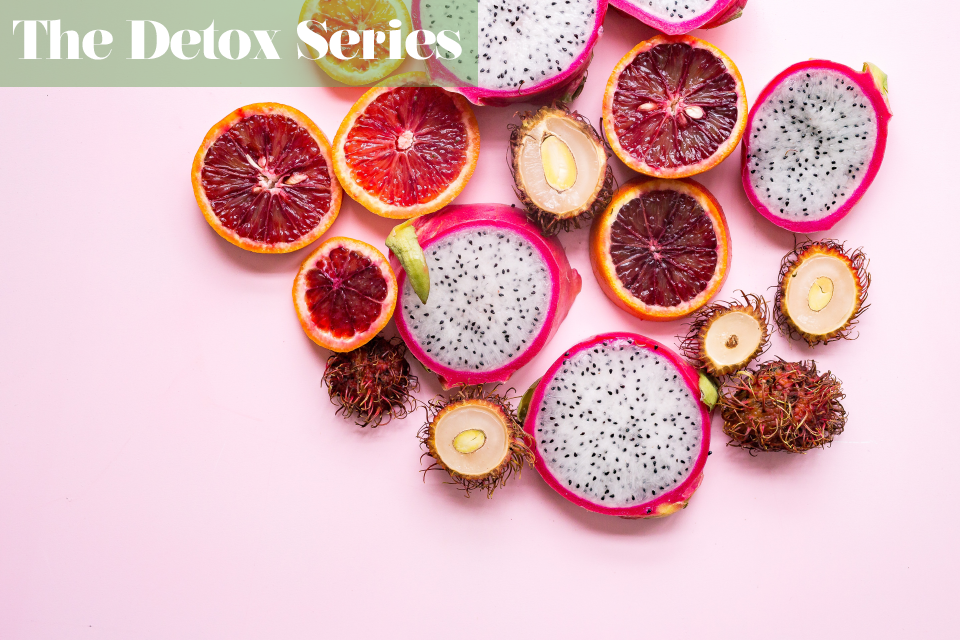15 Delicious Fruits for Skin Health & Nutrition
Consuming fruits as part of your daily healthy diet can help rejuvenate and nourish your skin inside and out.
If you are looking for nutritious fruits that are best for your skin health, you just came to the right page!
Consuming fruits as part of your daily healthy diet can help rejuvenate and nourish your skin inside and out.
In this article, we’ll go through a variety of fruits and find out what nutrients they contain that provide glowing effects for your skin!
Why are Fruits Healthy?
It is always a good choice to eat more fruits as part of your regular, well-balanced, healthy diet since they contain natural dense sources of vitamins, minerals, and antioxidants that are vital for your overall health and maintenance of your body.
Fruits are the sweet and fleshy edible part of a plant. They come in a wide variety of colors, shapes, textures, and most of them contain seeds.
Further, fruits are usually eaten raw or fresh; however, some kinds are also used for culinary purposes.
Depending on sex, age, and physical activity level, the USDA MyPlate recommends including 1 to 2 cups of fruit per day as part of a healthy diet.
So, how can fruits improve your health?
- Fruits will help reduce your calorie intake as their fleshy characteristic can make you feel full and satisfied without feeling awfully bloated.
- Eating fruits increase your Vitamin C, folate, fiber, and potassium intake as these are the essential nutrients that most people around the world do not get enough of in their diet.
- Incorporating fruits as part of your meals reduces your risk of acquiring lifestyle diseases such as cancer, diabetes mellitus, and heart diseases.
- The nutrients found in fruits can give you clear and glowing skin by rebalancing your hormone levels and fighting acne or other skin conditions.
Knowing that fruits contain rich sources of vitamins and minerals, they are nature’s treats that we can easily grab for a quick snack. They have a good crunch and sweet bursts of juiciness in every bite.
Also, you get to enjoy fruits any time of the day – breakfast, lunch, dinner, or snack time.
Nutrients Found in Fruits
You may have your external solutions, such as creams and lotions, to help smoothen, tone, and firm the surface of the skin, but sadly, they are not enough.
If you are looking for the solution to maintain your skin health, eating fruits as part of a healthy diet is the key!
Treat yourself with good nutrition for healthy, radiant skin with these essential nutrients that you can get from fruits!
The B vitamins
Fruits are your natural source of vitamin B-complex that supports healthy cells and prevents infections.
B vitamins such as niacin (B3), pantothenic acid (B5), pyridoxine (B6), biotin (B7), folic acid (B9), and cobalamin (B12) promote cellular metabolism and help your body regenerate healthy skin cells.
Researchers have found that vitamins B3, B5, and B9 show promising effects on treating acne skin inflammation and improving signs of aging.
B vitamin deficiencies involve dermatological symptoms such as itchy red rash, seborrhoea, or fungal skin infections.
Vitamin C
You need vitamin C or ascorbic acid to keep your skin hydrated and plump.
Vitamin C is needed for collagen production to keep your skin firm, and it is an antioxidant that scavenges free radicals that contribute to early signs of aging.
Research has found that vitamin C contains smoothing and moisturizing effects, and it can also suppress melanogenesis to treat skin hyperpigmentation conditions.
Healthy Fats
You might find it weird to relate fats and fruits, but yes, some fruits contain a great source of a healthy fat called monounsaturated fatty acids.
Getting an adequate intake of monounsaturated fatty acids can reduce oxidative stress and may have the potential to protect your skin from photoaging.
Fruits like avocados, coconuts, and olives possess monounsaturated fats that can help lower your Low-density Lipoprotein (LDL), or bad cholesterol levels, while raising your High-Density Lipoprotein (HDL), or good cholesterol levels, lowering your risk from heart diseases.
Vitamin A
Vitamin A supports the health of your skin’s epidermis and dermis.
This vitamin comes in two forms: carotenoids (provitamin A) and retinol (preformed vitamin A). It supports the stimulation of new skin’s cell production, supports immunity, and provides a natural moisturizing effect to help keep your skin hydrated.
Vitamin A is also an antioxidant that can fight free radicals and slows down aging.
If someone is vitamin A deficient, overproduction of keratin may occur in the skin’s hair follicle, and it can lead to a bumpy rash-like condition called follicular hyperkeratosis or keratosis pilaris (KP).
Vitamin E
Vitamin E, also known as tocopherol, is known to effectively treat eczema and heal wounds, together with vitamin C and zinc.
This vitamin is also an antioxidant that can fight against oxidative stress and slow down skin aging.
Selenium
Selenium is a mineral that is only needed in trace amounts, but research has found that it can actually help fight cancer and inflammation, and it contains antioxidants that can protect your skin from harmful UV rays.
Zinc
For your skin health, zinc, a mineral, is needed for immune cell function and wound healing.
A study supports that zinc aids in the body’s immune and neuropsychiatric functions protects your skin against harsh UV radiation, and reduces your risk of acquiring heart disease and cancer.
Fruits for Skin Health
Look for fruits that contain dense amounts of nutrients and antioxidants to nourish your skin from the inside out.
Let’s see what nutrients these fruits contain that your skin will benefit from.
1. Avocado
Avocados are denser sources of monounsaturated fatty acids, which can significantly decrease total cholesterol and LDL cholesterol levels, and increase HDL cholesterol levels.
It also contains abundant amounts of vitamins that are great for your skin health.
For every piece of avocado fruit (201g), it can cover 56% of your daily need for vitamin B5, 41% for vitamin B9, 30% for vitamin B6, 22% for vitamin B3 and vitamin C, 11% for vitamin B1, and 2% for vitamin A.
To enjoy your meals with avocados, you can add them to your salad, breakfast bowls, burritos, wraps, or sandwiches.
Or, you can blend it together with spinach for a cool and healthy green smoothie.
2. Guava fruit
If you are looking for vitamin C-rich fruit other than orange, guava is the answer! Guava is recognized to have the highest vitamin C content!
Oval in shape, green or yellow in color, this hard or soft tropical fruit consists of an off-white to deep pink flesh that tastes sweet or sour. You can even eat the small seeds in the central pulp if they’re not hard.
For every 100g of raw guava fruit, it can cover 254% of your daily need for vitamin C, 3 to 12% for vitamin B-complex, 3% to 12% for vitamin B-complex, 3% for vitamin A, 2% for zinc, and 1% for selenium.
Yes, guava can give you about four times more ascorbic acid or vitamin C than oranges!
3. Kiwi fruit
Here’s another vitamin-C-rich fruit that is greater than oranges!
Kiwi is a flavorful and slightly acidic oval-shaped fuzzy-looking brownish-green fruit known as the Chinese gooseberry of the Actinidiaceae family.
Kiwifruit has a green and juicy firm flesh that comes with edible purple-black seeds in the center.
For every 100g of kiwifruit, it can provide 103% of your daily need for vitamin C, 10% for vitamin E, and 2% to 6% for vitamin B-complex.
4. Watermelon
To keep your skin healthy, you also need to keep it hydrated all the time.
And watermelons can give you that extra hydration your skin needs!
People would always look forward to the hot days so they could munch on this sweet, juicy, and fleshy fruity treat. Watermelons are always the star of the summer season.
They may look awfully big, but they’re actually light for your tummy.
Containing 92% of water, the watermelon’s high water content can help to flush out body toxins and improve your bowel movement.
A 200g serving of raw watermelon can cover 60% of your daily need for vitamin C, 21% for vitamin A, 5% to 29% for vitamin B-complex, 2% for vitamin E, 6% for zinc, and 5% for selenium.
For a light and healthy snack, have a bowl of watermelon. You can also add them to your fruit salad or add them to your smoothies for a twist.
5. Lemon
Lemons contain potent amounts of antioxidants that help scavenge free radicals and protect your skin from dark spots and photodamage.
Make lemon a part of your diet too! You can make lemonade juice or mix it in your favorite fresh salad.
For every piece of lemon fruit (84g), it can cover 49% of your daily need for vitamin C, 2% to 4% for vitamin B-complex, 1% for vitamin E, and 1% for selenium.
Beauty gurus would also recommend mixing lemon juice with rose water as a facial cleanser.
Some people would mix lemon juice with milk for dry skin to help get rid of dark circles.
6. Papaya
Call it pawpaw, papaw, or just papaya, this succulent fleshy, and musky tang-tasting fruit is a common fruit served for breakfast, while the unripe once are cooked in soupy cuisines.
Papayas are great for your skin!
With just one small fruit of ripe papaya (157g), it can cover 98% of your daily need for vitamin C, 8% for vitamin A, and 3% for vitamin E.
Aside from these nutrients, papayas have papain and chymopapain, enzymes that can potentially fight oxidative stress that can cause skin damage.
7. Strawberries
Smothered with small achenes on its skin, bright red in color with a soft fleshy and sweet pulp, you can find this fruit commonly used in jams, pies, cakes, and other desserts.
For every cup of sliced raw strawberries (166g), it can give you 108% of your daily need for vitamin C, 3% for vitamin E, and 2% for zinc.
8. Mango
For skin rejuvenation, this sweet and fleshy fruit will do the job for you!
For every piece of mango fruit (336g) without refuse, it provides 136% of your daily need for vitamin C, 20% for vitamins A and E, 8% to 36% for vitamin B-complex, 4% for selenium, and 3% for zinc.
Mangoes are commonly added in smoothies, breakfast bowls, or fruit salad.
Some mash the mango flesh for topical use. After applying it to your skin, rinse off after 10 minutes as part of a skin rejuvenation routine.
9. Oranges
From skin to pulp, everything about this round and aromatic fruit screams orange!
Belonging to the same family as lemons, oranges can also provide beneficial effects to your skin.
For every large piece of an orange fruit (184g), it can provide 109% of your daily need for vitamin C, 3% to 14% for vitamin B-complex, 2% for vitamins A and E, 2% for selenium, and 1% for zinc.
Aside from munching it raw, you can press it to make a nice pulpy orange juice, or you can add them to recipes like salads, stews, pizza, cake, smoothies, and more.
Topically, you can apply it on your skin if you have pigmentation and rinse it off after a few minutes.
10. Pineapples
Known as the queen of fruits, this exotic fruit is known for its sweet, juicy, and tangy taste.
For every cup of pineapple chunks (165g), it can cover 88% of your daily need for vitamin C, 1% for vitamin A, 7% to 11% for vitamin B-complex, and 2% for zinc.
Besides that, pineapples contain bromelain, an enzyme that can potentially deal with inflammation, prevent cancer, and improve wound healing.
Make pineapples as part of your breakfast, or eat some slices as a snack or dessert.
You can also include them in your burritos, wraps, stews, or even use them as a pizza topping.
11. Banana
Interestingly, studies found that bananas contain anticarcinogenic and antimicrobial properties, making them good for your skin.
For every cup of sliced bananas (150g), it can cover 14% of your need for vitamin C, 6% to 32% for vitamins B-complex, 1% for vitamins A and E, 3% for selenium, and 2% for zinc.
To get glowing skin by eating bananas, you can include them in your breakfast bowl or make a smoothie with it. Furthermore, you can use it to make a banana loaf or banana muffins too.
For external use, you can mash your bananas and spread them all over your skin to make it soft and supple.
12. Apple
Apples are popular fruits around the world. They are known for their potent antioxidative properties that eliminate harmful free radicals in the body.
For every large-sized apple (223g), it can provide 11% of your daily need for vitamin C, 3% for vitamin E, 3% to 5% for vitamin B-complex, 1% for vitamin A, and 1% for zinc.
13. Apricot
Apricots are also called Armenian plums, as it tastes as tarty as purple plums. This stone fruit is a smaller version of a peach fruit with a round shape and yellow color.
For every cup of sliced apricots (165g), it can cover 18% of your daily need for vitamins A and C, 10% of vitamin E, 4% to 5% for vitamin B-complex, and 3% for selenium.
Apricots contain high amounts of antioxidants in which people would also often use as an exfoliating face scrub to correct poor skin tone.
14. Pomegranate
Pomegranates are one of the fruits that have survived since ancient times, and it is a cosmetic ingredient to promote skin health.
An in vivo study supports that pomegranate juice concentrated powder (PCP) can protect your skin from UV rays and possesses moisturizing, anti-inflammatory, and antioxidative properties.
For every cup of pomegranate fruit (174g), it can provide 20% of your daily need for vitamin C, 7% for vitamin E, 3 to 17% for vitamin B-complex, 6% for zinc, and 2% for selenium.
15. Cherries
Cherries are known for their high antioxidants that help prevent oxidative stress and slow down the skin aging process.
For every cup of cherries without pit (154g), it can cover 12% of your daily need for vitamin C, 1% for vitamins A and E, 1% to 6% for vitamin B-complex, and 1% for zinc.
Final Thought
For healthy and glowing beautiful skin, see to it that you are getting adequate amounts of healthy fats, vitamins C, B-complex, A, E, minerals, and antioxidants.
As mentioned above, these healthy fruits will provide you with abundant amounts of these essential nutrients for your skin health.
Catch our latest scoops and updates on beauty and wellness!
Sign up for our newsletter below!
References
Agriculture, U. S. D. of. (2009). Why is it important to eat fruit? MyPyramid.Gov, 2.
Fischer, F., Achterberg, V., März, A., Puschmann, S., Rahn, C. D., Lutz, V., Krüger, A., Schwengler, H., Jaspers, S., Koop, U., Blatt, T., Wenck, H., & Gallinat, S. (2011). Folic acid and creatine improve the firmness of human skin in vivo. In Journal of Cosmetic Dermatology (Vol. 10, Issue 1, pp. 15–23).
Gilbert, C. (2013). What is vitamin A and why do we need it? Community Eye Health Journal, 26(84), 65–65.
Keen, M., & Hassan, I. (2016). Vitamin E in dermatology. In Indian Dermatology Online Journal (Vol. 7, Issue 4, p. 311).
Latreille, J., Kesse-Guyot, E., Malvy, D., Andreeva, V., Galan, P., Tschachler, E., Hercberg, S., Guinot, C., & Ezzedine, K. (2012). Dietary Monounsaturated Fatty Acids Intake and Risk of Skin Photoaging. PLoS ONE, 7(9), 3–9.
Lobo, V., Patil, A., Phatak, A., & Chandra, N. (2010). Free radicals, antioxidants and functional foods: Impact on human health. In Pharmacognosy Reviews (Vol. 4, Issue 8, pp. 118–126).
McKenzie, R. C. (2000). Selenium, ultraviolet radiation and the skin. In Clinical and Experimental Dermatology (Vol. 25, Issue 8, pp. 631–636).
Mukherjee, S., Date, A., Patravale, V., Korting, H. C., Roeder, A., & Weindl, G. (2006). Retinoids in the treatment of skin aging: an overview of clinical efficacy and safety. Clinical Interventions in Aging, 1(4), 327–348.
Navarrete-Solís, J., Castanedo-Cázares, J. P., Torres-Álvarez, B., Oros-Ovalle, C., Fuentes-Ahumada, C., González, F. J., Martínez-Ramírez, J. D., & Moncada, B. (2011). A double-blind, randomized clinical trial of niacinamide 4% versus hydroquinone 4% in the treatment of melasma. Dermatology Research and Practice, 2011.
Nutrition facts. (n.d.).
Pullar, J. M., Carr, A. C., & Vissers, M. C. M. (2017). The roles of vitamin C in skin health. Nutrients, 9(8).
Rembe, J. D., Fromm-Dornieden, C., & Stuermer, E. K. (2018). Effects of Vitamin B Complex and Vitamin C on Human Skin Cells: Is the Perceived Effect Measurable? In Advances in Skin and Wound Care (Vol. 31, Issue 5, pp. 225–233).
Rostan, E. F., Debuys, H. V., Madey, D. L., & Pinnell, S. R. (2002). Evidence supporting zinc as an important antioxidant for skin. In International Journal of Dermatology (Vol. 41, Issue 9, pp. 606–611).
Taussig, S. J., & Batkin, S. (1988). Bromelain, the enzyme complex of pineapple (Ananas comosus) and its clinical application. An update. In Journal of Ethnopharmacology (Vol. 22, Issue 2, pp. 191–203).
USDA. (n.d.). Fruits.
Wolfe, K., Wu, X., & Liu, R. H. (2003). Antioxidant activity of apple peels. In Journal of Agricultural and Food Chemistry (Vol. 51, Issue 3, pp. 609–614).
Yang, M., Moclair, B., Hatcher, V., Kaminetsky, J., Mekas, M., Chapas, A., & Capodice, J. (2014). A Randomized, Double-Blind, Placebo-Controlled Study of a Novel Pantothenic Acid-Based Dietary Supplement in Subjects with Mild to Moderate Facial Acne. Dermatology and Therapy, 4(1), 93–101.







